
| 17-19 Feb 2026 |

|
| Transit Systems NSW Strategic Improvement Programme | |

| 18-19 Feb 2026 |

|
| Queensland Government Department of Transport and Main Roads Policy, Planning and Investment Division Team Event | |

| 12 Feb 2026 |

|
| Hobart Airport Leadership Forum | |

| 11 Dec 2025 |

|
| Hobart Airport Leadership Forum | |

| 9-10 Dec 2025 |

|
| Hobart Airport Executive Event | |

| 28 Nov 2025 |

|
| Queensland Government Department of Transport and Main Roads Network Services and Operations Division Leadership Forum | |

| 27 Nov 2025 |

|
| Queensland Government Department of Transport and Main Roads Policy, Planning and Investment Division Olympic and Paralympic Coordination Branch Departmental Event | |

| 21 Nov 2025 |

|
| Transit Systems NSW Leadership Forum | |

| 21 Nov 2025 |

|
| Queensland Government Department of Transport and Main Roads Corporate Division Interface Event | |

| 18-19 Nov 2025 |

|
| Transit Systems NSW Executive Event | |

| 13 Nov 2025 |

|
| Queensland Government Department of Transport and Main Roads Network Services and Operations Division Executive Event | |

| 7 Nov 2025 |

|
| Queensland Government Department of Transport and Main Roads Strategic Rail Branch Departmental Event | |
Executive Events
Background and purpose
The top two building blocks for a successful organisation are: (1) A good leader and (2) A high-performing Executive Team or, to use UIMPROVE language, Corporate Brain. It is well established that the best way to develop a high-performing team is to put people in a room together and give them something they have in common to work on. An Executive Event lifts this idea up to an organisational and strategic level. The focus, pitch and content of Executive Events are about leading the whole organisation, and not just about the team itself.
The high-level purposes of an Executive Event are to:
| (1) | Proactively create a high-performing Executive Team and develop the Corporate Brain of the organisation |
| (2) | Work together on topics of organisational importance |
| (3) | Set the direction for and improve the organisation |
Typical aims
These are to:
| • | Hear from the leader |
| • | Reflect on progress and achievements |
| • | Look to the future |
| • | Provide an opportunity for quality thinking time |
| • | Identify and plan for future challenges |
| • | Do Real Work together |
| • | Develop the team |
| • | Get to know each other better |
| • | Learn together |
| • | Create alignment and momentum |
If we are not aligned, no-one is aligneda client
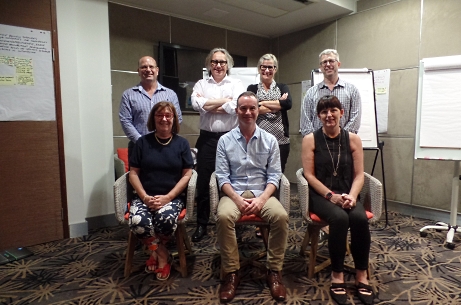 |
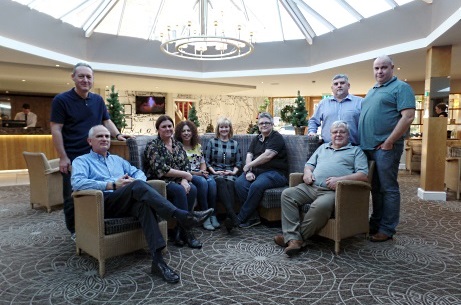 |
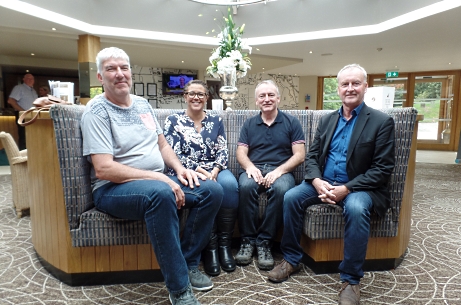 |
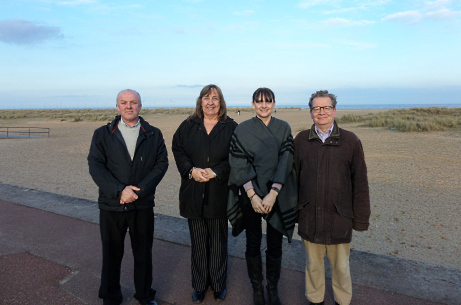 |
Who should attend?
| (1) | The Chief Executive/Managing Director |
| (2) | Directors, i.e. Direct Reports to the Chief Executive/Managing Director |
Format and frequency
These events are best run over 2 days at an off-site location conducive to strategic thinking. The ideal frequency is 6 monthly.
Executive Events are one, and perhaps the most important, component of a systematic approach to organisational improvement. Better to do these than nothing at all, but rapid and sustainable results happen if these events are part of an holistic approach and form the backbone of an annual calendar that includes training and other team-based activities.
Typical contents
Typical contents include:
| • |
Individual Perspectives A high-level review consisting of a series of questions designed to get the strategic juices flowing and establish where each individual thinks they/their department/the organisation is at, both strategically and operationally. Individual Perspectives provides a unique opportunity for each individual to compare and contrast where they are in relation to their colleagues and it is especially important for the leader to hear and reflect upon this. |
| • |
Leader Speaks An opportunity for the leader to set out their stall, say what is on their mind and spell out their priorities for the team and organisation. To quote two of our long-standing clients: "It's a fundamental opportunity to communicate key messages to your team in a manner that can't be done any other way". "A Leader Speaks is your chance to set the direction, where you're coming from and what you stand for". |
| • |
Strategy development/implementation/review work
|
| • |
Real Work Scoping, identifying options and determining a way forward for topics that are strategically important to the organisation. |
| • |
Organisational maintenance e.g. succession planning, organisational design review |
| • |
Getting to know each other better The team learn more about each other, e.g. experience, backgrounds, preferences. |
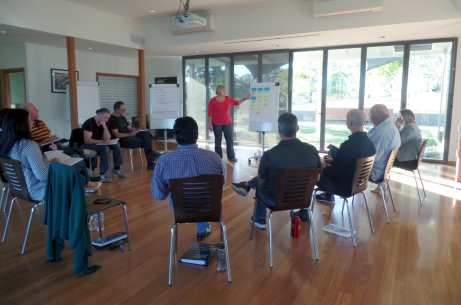 |
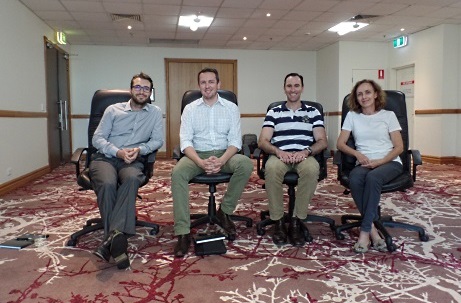 |
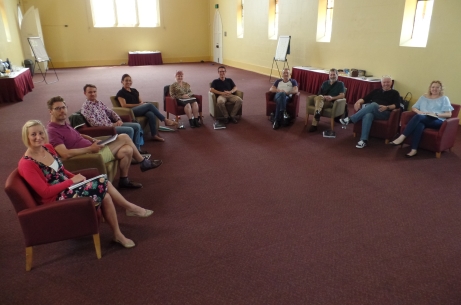 |
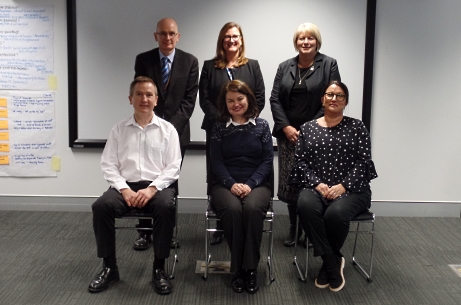 |
Download
Click here for the Executive Events Briefing Note
Click here for the list of teach-ins we have developed as a result of carrying out these events for many years.